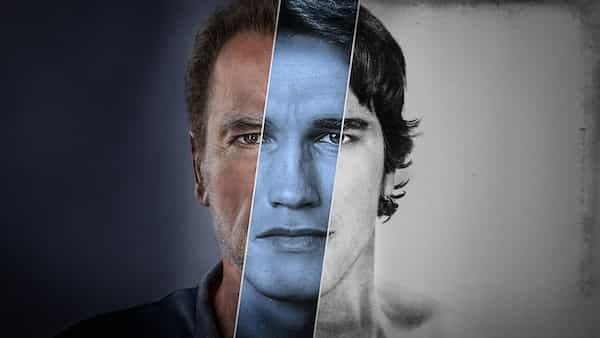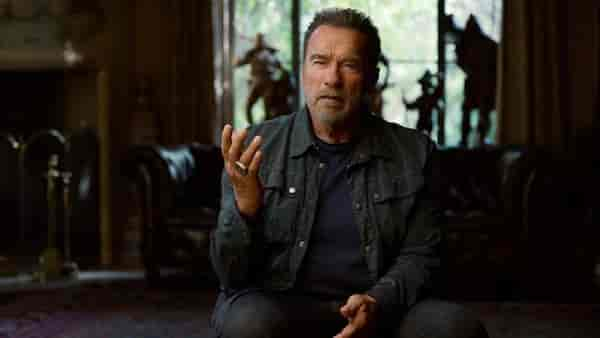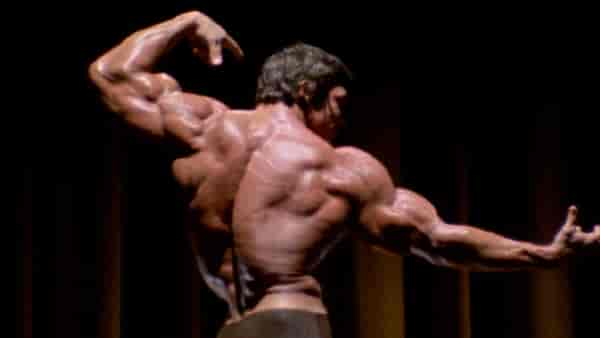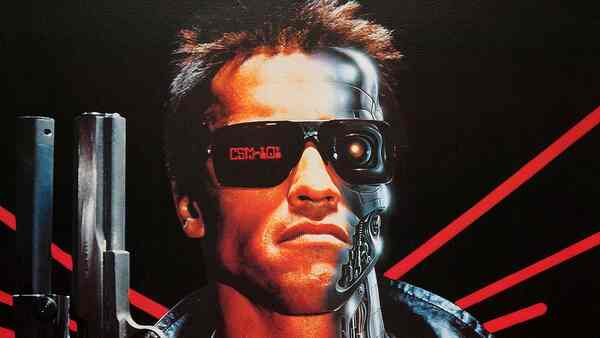Newsletter | Arnold: More Self-Congratulatory Pat Than Disarming Life Story
This is #CineFile, where our critic Rahul Desai goes beyond the obvious takes, to dissect movies and shows that are in the news. Today: Arnold on Netflix.

Last Updated: 05.27 PM, Jun 12, 2023
This column was originally published as part of our newsletter The Daily Show on June 12, 2023. Subscribe here. (We're awesome about not spamming your inbox!)
***
THERE is absolutely nothing in Arnold — the three-part Netflix docuseries on Arnold Schwarzenegger — that we haven’t read or heard before. As in his 2012 biography Total Recall, the series is neatly segregated into three portions: Athlete, Actor, American. Which is to say: Champion Bodybuilder, Hollywood star, Governor of California. Each hour-long episode is dedicated to one career, to convey that Schwarzenegger has managed to excel at three disparate lives in one lifetime. It’s an incredible story, yes, because he’s achieved unprecedented success across all three fields — especially when Schwarzenegger himself narrates it in that iconic German-Austrian accent while smoking his favourite Cuban cigars. He’s an immigrant fairytale, a global sensation, and arguably the most famous face on the planet for half a century. But is Arnold really about the man behind the legend? Is Arnold interested in being more than a formalised, anecdotal and motivational hagiography that gets too busy revering his psyche to investigate it? Do we learn anything new about a person who just happens to be the Arnold Schwarzenegger? The short answer: No.
The long answer isn't complicated either. Watching Arnold feels a lot like watching an entertainer and a politician selling a self-help book — the image-burnishing, over-curated wit goes hand in hand with his macho, mantra-heavy personality. A 75-year-old Schwarzenegger speaks in broad designs, determined to express that there is no time for weakness and regrets; there is no space for sadness and depression; and that staying busy is the healthiest thing a human being can do. If that doesn’t sound boomer enough, he glides over definitive events of his life — like the tragic death of his ‘delicate’ brother, the abusive influence of his PTSD-afflicted and Nazi-sympathising father, the multiple sexual harassment allegations, his long-time affair with his housekeeper — as if they’re just bullet points that must be mentioned for the sake of balance. His apology is stoic and “manly,” the kind that suggests he is now a portrait of transformative wokeness. Vulnerability feels like more of a brand management session, where the upbeat man recites his feelings with studied eloquence and flair. When he speaks about how acting suddenly demanded that he summon feelings long numbed by bodybuilding, it’s like his eyes are twinkling at his publicity interns behind the teleprompter. The shots of his present-tense life — at his massive farmhouse with donkeys and dogs, or chilling in an open-air jacuzzi at his snowy winter mansion; alone, mind you, no mistresses for the intrusive cameras to capture — are carefully selected to make him seem unapologetic about his love for luxury and good things. I’ve never been less impressed by the “if you have it, flaunt it” mantra.

In other words, much of Arnold feels plastic and put-on. I didn’t get a nice feeling as a viewer; the subject is so aware of his silver-tongued charm that he knows we’re going to buy him as more of a ‘narrative’ than a person. There is very little insight into what makes him tick as a professional, other than repetitive hacks about hard work and indomitable spirit. There’s a part where his 1980s Hollywood rival, Sylvester Stallone, talks about how Schwarzenegger was so physically intimidating that he played the kind of action roles where he can’t get beaten up (unlike Stallone himself). He has to be invincible in those movies, a killing machine that is almost never the underdog in a combat or chase sequence. This trait bleeds into the docuseries, too, where any sort of scars or blemishes are only used as fuel to power his crushing life story. There is no time to ponder or think, and no chance of pausing and reflecting on a segment that still keeps him up at night. This is an elongated action film, and he is the all-conquering hero.

It’s not exactly airbrushed, but the tone succumbs to the whims of a very old-fashioned, no-tears masculinity. The muscles emerge in his voice, like he’s still posing on stage and seducing audiences into accepting him as a self-made foreigner. He knows how to say the right things and then appear modest about it — a red flag but also a trigger for all those who were wronged by him over the years. It says something that his ex-wife, Maria Shriver, isn’t part of the series. Being a Kennedy herself, she may have had frank opinions about his role as a husband and a father, and how his professional reputation is perhaps an overcompensatory tool for all his personal shortcomings. And that would not be convenient. “I serve the Californian people,” he repeats in the third part, making him sound like the hard-working patriarch who doesn’t blink an eyelid while sacrificing his family at the altar of public service. Celebrity friends like James Cameron and Stallone praise his drive and (if one must read between the lines) his ability to become a superstar despite possessing the acting talent of a giant tree.

Even when he mentions his affair — and the marital discord that followed — it appears towards the end of the show, almost mirroring the fact that he hid his ‘secret son’ for 15 years himself until the truth emerged in 2011. That he cheated in 1996, in the thick of his film career, is a detail conspicuously missing from the second part, almost as if it doesn’t fit in there. So he ‘reveals’ it just like it was belatedly revealed in popular culture. Ditto for his old bodybuilding friend — a sweet, life-long bond — that suddenly gets a passing mention in the dying moments of the series. If it was a friendship that influenced him so deeply, it doesn’t show, because then the series would have to portray Schwarzenegger as a heterosexual softy who actually made human connections. Instead, his former staff members recall how he catapulted America into the future with his pushy attitude towards policy-making, and his vision for a future that others can’t see. Some of it might be true, too, given that he was a greenhorn in a stubbornly traditional field of Republican politics. But the word ‘vision’ is said so often that it’s hard to not think of every episode as a new Apple product.
Arnold — unlike the man himself — is a lost opportunity. It’s a dry and over-composed ode, and the simplification of what is probably a layered and complicated personality. It’s fascinating for those who have no idea who Arnold Schwarzenegger is or what he meant to generations of aspiring musclemen, teenagers and Hollywood fans. And for those who don’t mind seeing him undefeated after nearly eight decades on different mountain tops. But there are very few people like that. So the audience for this is almost negligible, unless the world just wants to sense him say “I’ll be back” in between his stints on self-deprecatory action comedies (Fubar is streaming as we speak). The problem with people like Schwarzenegger is that they are so shaped by will power and positive thinking that they sound like human mottos for the rest of their lives. It’s a deeply ingrained habit, and while it bodes well for a career as a robotic action star and optimistic politician, it doesn’t make for profound non-fiction canon. As a result, Arnold is more of a lucrative life coach than a documentary series. It’s our job to not mistake a superb story for solid storytelling — and I think Arnold is successful in forcing us to tell the difference.

 Premium
Premium